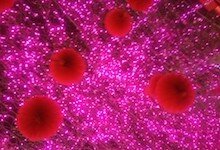
Gerrit Komrij was a lone figure in Dutch poetry at the time of the appearance of his first collection of poems in 1968. In the age of the Fiftiers and Sixtiers with their free verse forms and ready mades, the fixed form and diction of his poems was thought to be archaic and hackneyed. And the masquerade he put on in his poems contributed to his initially not being taken seriously. His most recent anthology Alle gedichten tot gisteren (All poems up to yesterday, 2004), however, comprises almost seven hundred pages of poetry and Komrij, who has always remained faithful to the fixed form of his first poems, is now – masks and all – considered to be one of the greatest living Dutch poets. From 2000 to 2004 he was the first poet laureate, Dichter des Vaderlands, of the Netherlands. In addition to being a poet, Komrij is also a prose writer of stature. His pieces on poetry make him one of the few Dutch poetry critics of any significance.
The title of Komrij’s latest collection of poems, Spaans benauwd (Spanish constriction), which appeared at the beginning of 2005, betrays the fact that it is still claustrophobia that spurs him on to write poetry. For Komrij, the first and last line of each poem are nothing less than reflections of the boundaries imposed on the life of the poet – and of humanity. The constriction of the chest evoked by the presence of these boundaries prompts the poet to stretch the bow between them as tautly as possible. The approaching final line of the poem – death, the end of time – causes ominous creaks and groans in Komrij’s poetry. He is balancing above the abyss. The sheer fun and frolics of a masquerade tend to wear off if the real poem may turn out to reveal a death’s head. “Divest me of my masks and/ I’m (…) With marble grave close at hand”, Komrij writes in his latest collection. The balance is precarious: “Whoever changes colour even faster/ Will really disappear, perhaps”. It is thanks to the figments of the poet’s imagination that language and humanity escape from the fossilisation that they live and love (for the erotic connotation is always there in these poems): “Strip me of poetry and/ I’m (...) A man with no magic wand.”
Translated by John Irons







